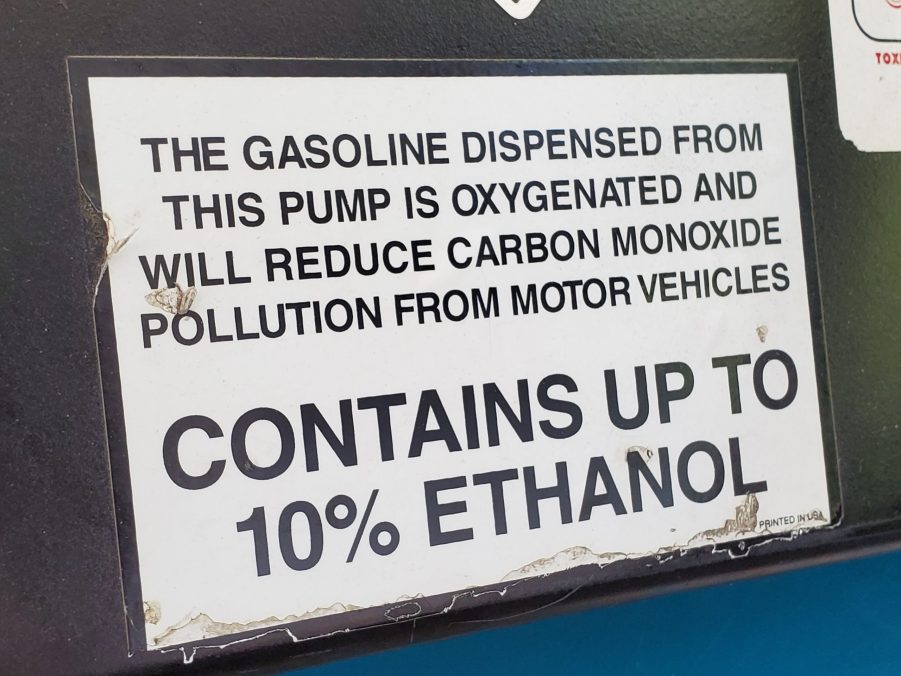
Ethanol in Gasoline May Hurt Air Quality More Than It Helps, Study Says
Ethanol-blended fuel is widely used here in the United States. Most cars on the road run on a blend of up to 10% ethanol. In the U.S. this comes in large part from corn. Its use in gasoline is to combat vehicle emissions and greenhouse gasses. Now, a new study, funded in part by the National Wildlife Federation and the U.S. Department of Energy, throws that assumption into question.
What is ethanol in gasoline?
Ethanol’s use as a biofuel additive to gasoline has been common since the late 1970s. Brazil, the United States, and Europe are the primary consumers. Ethanol fuel is ethyl alcohol, the same alcohol found in alcoholic beverages. Common crops such as corn, potato, cassava, sugarcane, and hemp can make biofuels. Because it comes from agricultural products, it is a renewable resource.
Here in the U.S., it is common to see a sticker on your local gas pump that denotes a 10% ethanol content in gasoline. E85, or flex-fuel, contains a higher ethanol concentration than regular gasoline. E85 refers to an 85% ethanol content and 15% gasoline content. However, the official specs for making E85 allow for anywhere between 51% to 83% ethanol content.
An obvious upside to alcohol biofuels is that they are a sustainable fuel source. However, ethanol is less energy-dense than gasoline and requires 1.5 gallons to equal the energy contained within 1 gallon of gasoline.
What does the study say?

According to Reuters, a new study published in the Proceedings of the National Academy of Sciences contradicts the U.S. Department of Agriculture’s research about the relative environmental friendliness of ethanol and other biofuels.
The study found that ethanol is likely at least 24% more carbon-intensive than gasoline. This is due to the emissions from growing, processing, and burning corn-based biofuels.
The researchers, which included scientists and professors from the University of Wisconsin, Kansas State University, University of California, and the University of Kentucky, considered the environmental impact from every aspect of biofuel production.
In an interview with Reuters, the study’s lead author, Tyler Lark, an assistant scientist at the University of Wisconsin-Madison, had this to say, “The production of corn-based ethanol in the United States has failed to meet the policy’s own greenhouse-gas emissions targets and negatively affected water quality, the area of land used for conservation, and other ecosystem processes. Corn ethanol is not a climate-friendly fuel.”
This new study contradicts a USDA investigation into biofuels conducted two years ago.
What does all of this mean for consumers and the environment?

When two credible studies contradict each other, lots of questions arise. For consumers, the obvious question is, does ethanol help or hurt air quality? For the policymakers that determine fuel standards and environmental initiatives, it throws into question the benefits of mandating biofuels in gasoline blends.
There will need to be additional studies that can confirm or refute the benefits of alcohol biofuels in gasoline. As well as the environmental impact of growing and processing corn for that purpose. Science has always been about doubt and testing theories. We should never take anything for granted, and this new study suggests that there are areas of ethanol production that were previously overlooked when determining its environmental impact.
We hope that future studies will clear up the questions and deliver a verdict on the questions surrounding ethanol’s use in gasoline blends.
Related: Why Is Ethanol Added to Gas?


